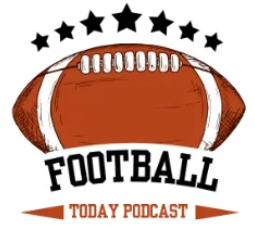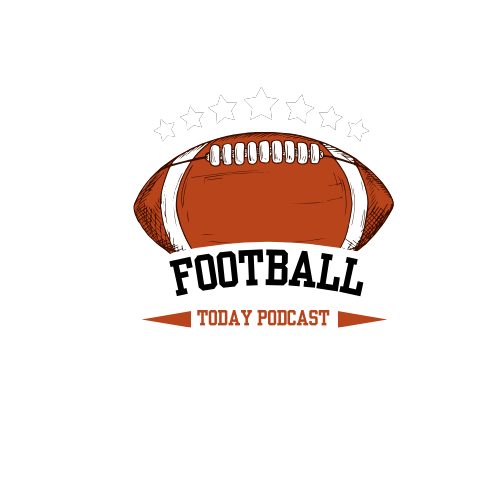
Barcelona President, Josep Maria Bartomeu
On April 9th, six members of Barcelona FC’s board resigned. It was just the latest incident in 2020 shining a spotlight on Barcelona’s hierarchy.
Football Today spoke with La Liga expert, Sid Lowe (The Guardian, ESPN.com, The Spanish Football Podcast) to analyse ‘Barcagate’ and what it means for the club.
Josh Schneider-Weiler: These board members wrote a resignation letter [published in La Vanguardia] that accompanied them leaving the board. What did it say?
Sid Lowe: The letter that they did, and they deposited with a notary rather than taking it to the press, but they deposited it with a notary because I think they wanted this to have a kind of a legal framework.
Essentially it [the letter] said that the six of them were resigning because they felt they could no longer control the direction the board was taking and it was a direction that they could no longer accept. Within that, there are a couple of other things that they pointed out. I think the most significant of those was that they demanded that the results of a supposedly external investigation into what became known as ‘Barcagate’, but those results would be known and that those people responsible would be held to justice. Also, that any money that the club had lost be paid back.
‘Barcagate’
Sid Lowe: Now, the ‘Barcagate’ case, of course, was related to Barcelona having a social media monitoring company that had set up sock accounts and bots online, which had been there to try and protect the reputation of the club’s president but in doing so, had also attacked some opposition figures and indeed even some of the players still at the club.
Josh Schneider-Weiler: The irony of all that is that it’s not even like they needed an anonymous social media account to criticize players if they wanted to do that even. They had their own sporting director, Eric Abidal, do that, which Messi pointed out publicly.
Sid Lowe: Yeah, absolutely. And actually, there’s another layer to that irony, which is they also had a significant part of the media in Catalonia, doing it for them. In particular, the Golo group, which basically means in sporting terms, El Mundo Deportivo, but also means La Vanguardia, are very much on the side of this board of directors, very much defenders of them.
Josh Schneider-Weiler: So why didn’t the board know about this €1 million contract with I3 Ventures for these ‘public relations’ services?
Sid Lowe: That’s the key question in all this. Why didn’t they know? When the investigation into this is carried out and when the results are made public and it’s been carried out by PriceWaterhouseCoopers, I think what we will see is there will be two elements to it: one will be the question of the morality, if you like the ethics of the whole thing, and the other will be the financial element to this.
A financial element helps to explain part of your question. Because the accusation is that this was a contract worth in the region of a million euros, around about €980,000, but all of the payments were made in installments for amounts under €200,000. Now, why is that significant?
That’s significant because any payment of €200,000 euros or above automatically triggers an internal audit. In other words, you find out about it if you’re on the board.
The fact that all of those payments come in at just under €200,000 and come in, how do we put this, suspiciously or conveniently close to that amount, but conveniently just the other side, suggests an attempt at the very least, to not have the difficulty of this being on the table for an audit.
On the table for someone [to be] like, ‘well, hang on a minute, what’s this payment? What’s this for? Why are we doing this? Should we be doing this?’
And of course that’s what provoked after the resignation of these board members, Emili Rousaud, who was one of the six of vice president of the club, to come out and say directly, “someone has had their hand in the till.”
Josh Schneider-Weiler: These reports came out in February, which was obviously a little while ago. So what was the reaction at the time to those reports and then how has it kind of changed or evolved since?
Sid Lowe: Well, the reaction at the time, as quite often happens with this, is that the first response was to deny this. So this was a story that was broken by Cadena SER radio in Catalonia and Barcelona denied it. Then of course, as often is the case when when an expose is handled very well by media organization, what Cadena SER did was then, add bits to the story.
So it’s denied and they [Cadena SER] said, ‘well, here we go, here’s the contracts’. Then it’s denied that, ‘No, no, but that company wasn’t actually employed to have a go at players. It wasn’t employed to bad mouth people. It wasn’t employed to protect the president. It was employed to be a social media monitor.’ And by the way, lots of clubs absolutely do do this.
So then the next stage is the scope. Well, here’s the demonstration that you see these accounts, these online news accounts, these online media accounts, these social media accounts that are criticizing Joan Laporta, Xavi Hernandez, there’s even one about Leo Messi’s wife.
What Cadena SER did was demonstrate that the companies that were behind those websites were indeed related to I3 Ventures and I3 Ventures was a company that Barcelona had employed.
Of course then what you get, you get the next stage, which is Barcelona saying ‘we paid them to monitor social media. We certainly didn’t pay them for this’. That’s when the club says, ‘okay, there has to be an audit, we have to find out what’s happened’. Obviously, there will be significant numbers of board members who didn’t know, but there must be some who did. And so an audit is set up now.
Now, my suspicion at this stage is that an investigation will tell us about the amount of money paid and whether that amount of money is too high for this kind of service, and therefore, whether perhaps it hides something else.
And I think we will probably get an economic conclusion from that investigation rather than an ethical or moral conclusion.
Josh Schneider-Weiler: When do you think we’ve might be able to get those results?
Sid Lowe: What we’ve been told is that some of the investigation has to be done in presidential interviews. In other words, it cannot be fully completed until after the lockdown is ended. The other elements of this, of course, is what happens is that this investigation will be presented to the club and then it will be a club disciplinary commission that decides what to do with that evidence.
And I think that while we don’t know the mechanics behind this, we have to ask questions about, which members of the board will be on that commission and where will their loyalties lie? What will their position be when it comes to analyzing the findings and deciding what to do with them?



